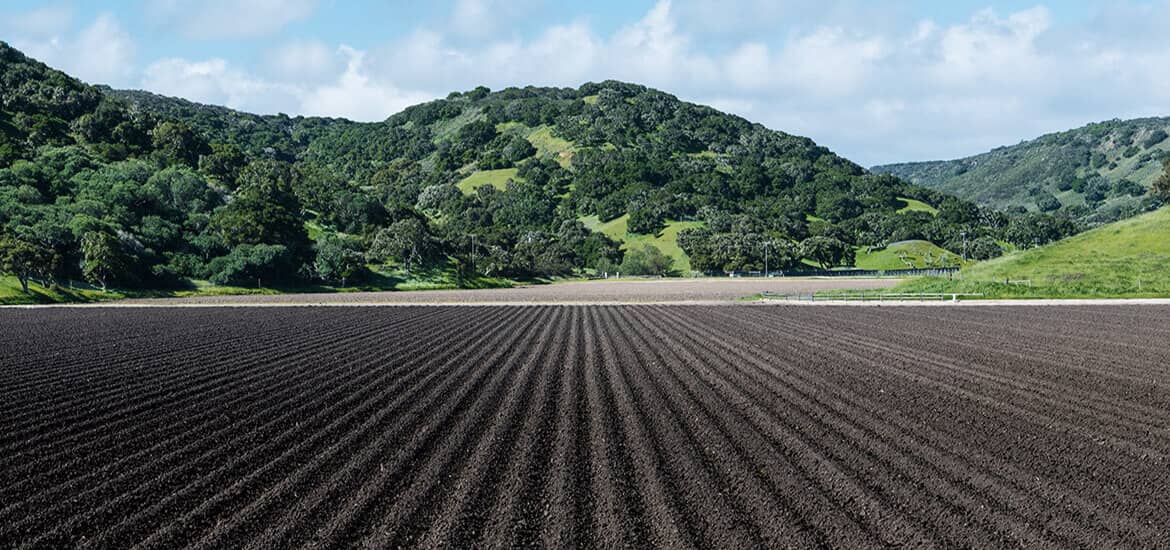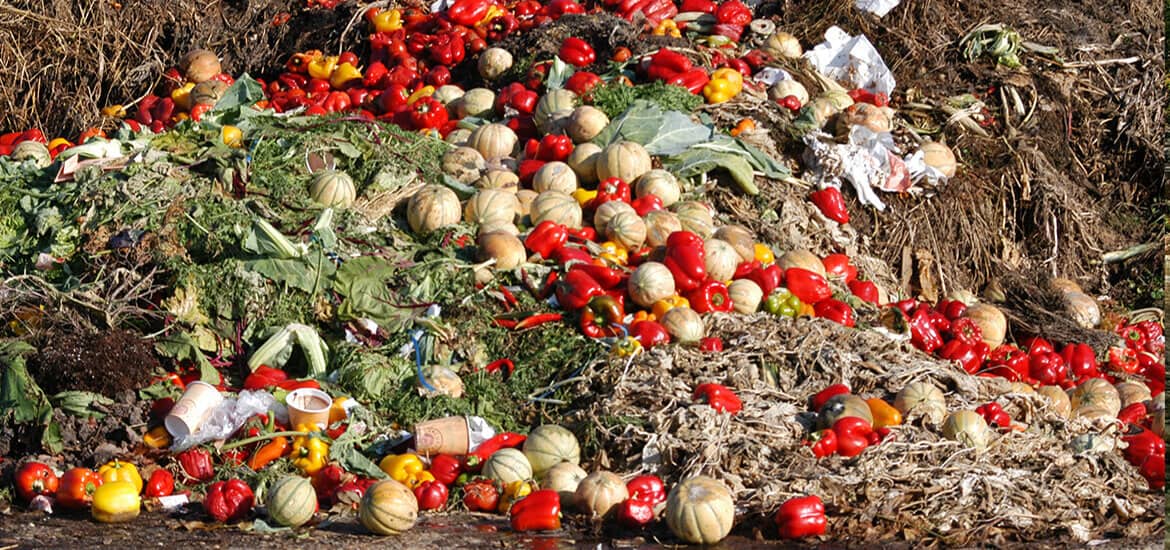4Sight 2030 Goals
We’re pledging to reduce energy, water, carbon, and waste across all of our production facilities, worldwide.
Simplot’s 4Sight 2030 Goals
At Simplot, we are true stewards of the land, air and sea, driven to provide more plentiful, healthier food using fewer resources. Since we have all components of the agricultural value chain, we can tackle agricultural sustainability issues like nobody else, and that’s the approach we’re taking with our new sustainability goals.
Energy
Reduce energy use 15% per ton of product
Water
Reduce freshwater intake 15% per ton of product
Carbon
Reduce carbon emissions by 20% per ton of product
Waste
Zero waste to landfill in our food processing plants
Improving Operational Efficiencies-Today, and in the Future
The ŒÞ”«∂à ”∆µ has specific and measurable sustainability goals. These operational goals are aimed at major reductions in energy, water, carbon and waste emissions by 2030. Having a dedicated plan enables us to more accurately map our future and track our progress, both globally and within every country in which we operate.
Energy
Our goal: We reduced energy use over 20% per ton of product during the past 10 years, and we intend to reduce energy use an additional 15% per ton of product by 2030.
Power Our Production Sites with Renewable Energy
Simplot scientists and engineers are using anaerobic digesters to convert waste into gas that can be used to reduce our waste and energy consumption. Anaerobic digestion uses bacteria to consume waste product and create methane, a core component of natural gas and other fuels.
Recover Heat, Convert It to Renewable Energy
Simplot's Ulverstone site in Tasmania, Australia installed a 500-kW heat exchanger in 2018 that recovers heat from the refrigeration system and uses it to pre-heat boiler feedwater. This system makes use of recovered heat that previously would have been vented to the atmosphere, but now saves us about 16,000 gigajoules of natural gas per year.
Similar principles are applied at our fertilizer manufacturing sites, as we reduce energy consumption through heat recovery. The heat generated by chemical reactions at our facilities is captured and used as an energy source.
Achieve and Sustain ENERGY STAR Excellence in Food Processing and Manufacturing
Simplot is an ENERGY STAR Industrial Partner. All Simplot food processing plants in the U.S. and Canada have earned ENERGY STAR Certification, an annual award given to facilities that perform in the top 25% for energy efficiency among similar facilities in its industry. Our Portage La Prairie facility in Canada has met the energy criteria for 10 consecutive years, officially earning ENERGY STAR recognition in 2019 when the program extended into Canada.
In 2019, Simplot’s Helm plant in California became one of the first nitrous fertilizer plants to receive ENERGY STAR certification. This pioneering accomplishment was repeated in 2020, when the Helm plant was certified for a second consecutive year.
Water
Our goal: Reduce freshwater intake 15% per ton of product.
Address Historic Impacts with Advanced Water Treatment
Precipitation infiltrating through overburden disposal areas (ODAs) constructed by historical mining in the 1980’s and 90’s at the Smoky Canyon Mine has mobilized selenium into the groundwater. Groundwater discharge at Hoopes Spring and South Fork Sage Creek Springs contribute selenium to downgradient streams. Simplot constructed a pilot water treatment plant (WTP) utilizing both physical and biological technologies to treat the impacted spring water. This unique and innovative treatment process uses two technologies. ultra-filtration (UF)/reverse osmosis(RO) membranes concentrate the selenium from the water; then a fluidized bed bioreactor (FBR) use specialized bacteria to reduce and precipitate selenium from water. The selenium is then removed as a solid. Simplot’s water treatment plant began operating at a 1,700 to 2,000 gallon per minute rate in December 2017. The treatment facility removes approximately 80-90% of the selenium from a portion of the spring water.
Reclaim and Recycle Water for a 50% Conservation Rate
Simplot’s state-of-the-art, LEED Gold Certified potato processing plant in Caldwell, Idaho, saves energy and water while increasing production. Among its many innovations, the plant utilizes a reverse osmosis water filtration system that can filter and recycle up to 1 million gallons per day. This reduces the fresh water use by nearly 50%, saving about 30 million gallons of water per month, with much of the remaining, nutrient-rich water applied to surrounding crops.
Carbon
Our goal: Reduce carbon emissions by 20% per ton of product by lowering emissions from our production facilities.
Adopt Next-Generation Technology for Freezer Storage
Simplot recently invested in a new high-bay freezer for improved energy efficiency at our Caldwell, Idaho, plant. The building design minimizes energy loss and allows for a smaller refrigeration system that uses less energy but still maintains the freezer at -5°F. The freezer also enabled Simplot to consolidate a variety of storage locations on site, helping reduce our transportation footprint and greenhouse gas emissions from trucking. The project also included efficient lighting, heat pumps and reflective roof coating. In total, these improvements will save over 6.5 million kilowatt-hours of energy per year – enough to power more than 545 average-sized homes for one year. Two of our other potato production facilities employ similar new high-bay freezers.
Put Sustainable Fuels to Work for Potato Processing
Simplot has several projects in the works that use sustainable fuels. For example, Simplot’s Moses Lake Plant features a state-of-the-art boiler designed to burn three different fuels: natural gas, hydrogen and biogas. Hydrogen burns clean and has zero carbon emissions from combustion. Simplot also has several operations across the country that capture biogas from anaerobic digesters. Biogas is a renewable resource generated onsite from the anaerobic digestion of potato waste that can be used as a sustainable fuel, allowing Simplot to eliminate waste and reduce energy consumption. By combusting biogas and hydrogen, the site reduces its carbon footprint and natural resource consumption compared to burning only natural gas.
Waste
Our goal: Zero waste to landfill for our food processing plants, worldwide.
Cultivate Composting
After a successful six-month composting pilot program, Simplot constructed a new advanced composting facility in Portage La Prairie, Canada. The plant was designed to compost a variety of processing waste including wet waste, cull potatoes and soil residue. As of 2020, the plant has composted 51,384 tons of waste, and is able to compost materials that would otherwise have been sent to landfills. Its closed-loop design allows the facility to limit any nutrient-rich leachate runoff into the environment by capturing it in holding cells and reduces greenhouse gas emissions. The runoff is re-incorporated into the composting process to maintain optimal moisture levels within the compost windrows.
Reduce Food Waste
Simplot remains active in finding new solutions for reducing waste. This includes removing nutrient rich food solids from potatoes and repurposing it for food ingredients or cattle feed. We also repurpose another waste product, activated biosolids, to enrich livestock feed and as a soil amendment. These biosolids management practices divert over 15,000 tons of waste from landfills each year. In addition, Simplot developed a new variety of potato for the fresh market that helps reduce food waste. The is less susceptible to bruising and spotting, so farmers can bring more of their crop to market and table with less waste due to damage or imperfections.








